Life at our Marine Conservation project in Thailand!
Volunteer Experiences / 16 October 2019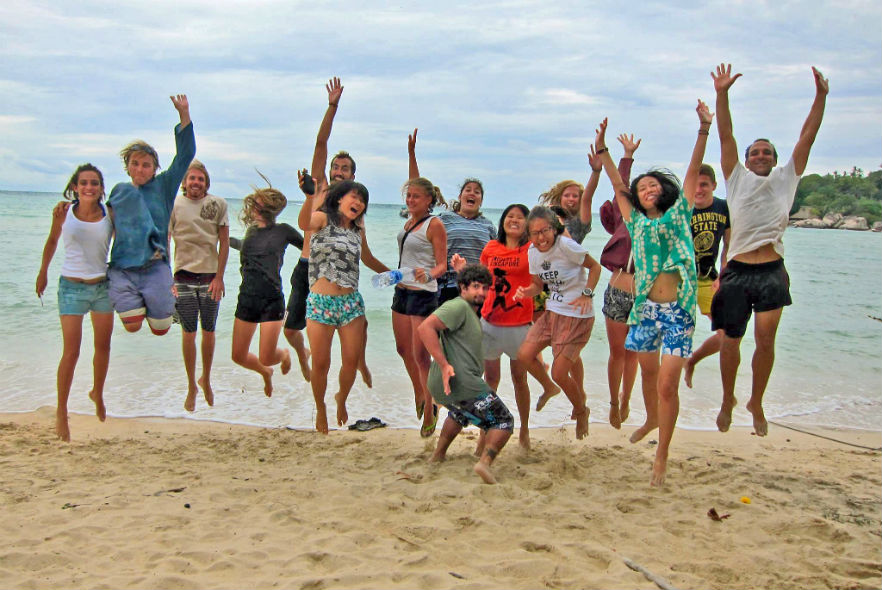
Our Marine Conservation project, based on the stunning island of Koh Tao, is a fantastic place for both experienced and budding divers to gain invaluable knowledge on the conservation efforts being carried out within the oceans surrounding the island.
Koh Tao is a dramatic mix of dense jungle and hilly terrain in its interior with granite outcrops and beaches along its coast. It is a simple, friendly and fun island with an atmosphere that means people usually stay a lot longer than intended! Pod Volunteer Specialist Iona had the opportunity to join the awesome team and learn more about how volunteers are actively contributing to and learning more about conservation efforts!
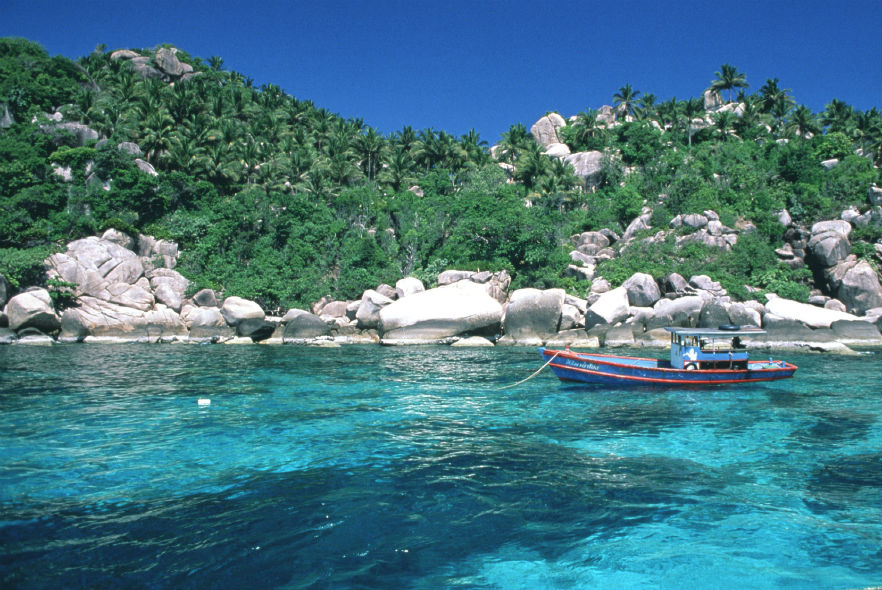
“Arriving at our Marine Conservation project in Thailand, I could immediately feel the passion both volunteers and the local team have for doing all they can to help conserve the environment! From selling reef-safe sun lotion, shampoo and conditioner bars to providing metal straws at the neighbouring cafe, extra steps have been taken to ensure that volunteers and staff are minimising their impact on the environment. This passion for the environment was infectious and I was excited to experience more of the volunteer role!
In keeping with the rest of the island, there is a leisurely start each working day with volunteers arriving to the dive school just before 9am, ready to start lectures! Each day, volunteers use these lectures as an introduction to what they will be carrying out during their dives later in the day.
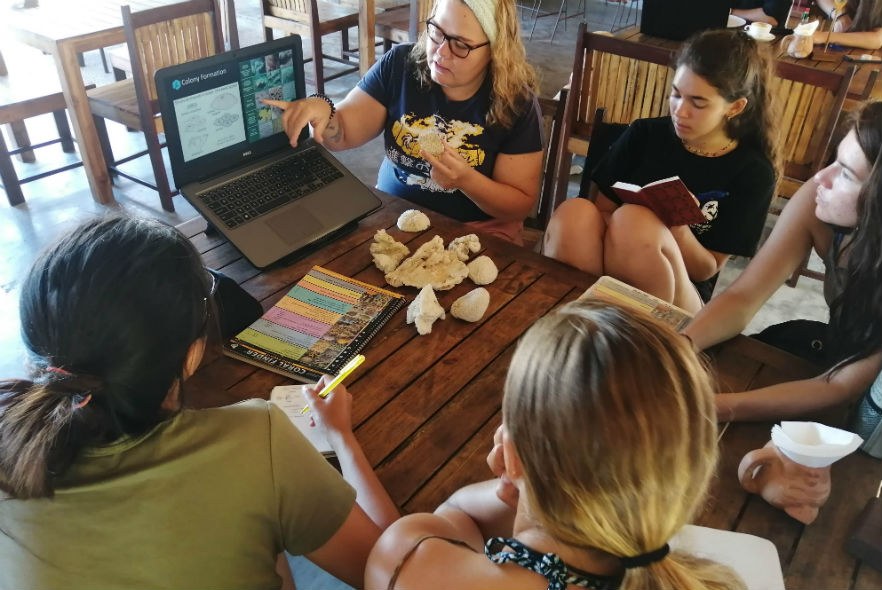
During my time at the project, I learnt all about the Ecological Monitoring Programme (EMP) which much of the project is centred around. This programme has been developed by the local team to ensure that detailed and long-term data for biodiversity, abundance, and health of the reefs of Koh Tao is easily accessible. Operating across 11 regularly visited dive sites around the island, the unique programme also works to create a better understanding of what is required to successfully carry out marine conservation work in the area.
It was amazing to see how the EMP has been developed and carried out to ensure it can be applied and understood by both the budding conservationist and the seasoned marine biologist, all while contributing to integral, long-term databases!
I also had the chance to learn more about how volunteers assist the local team with maintaining and installing the integral artificial reefs around the island. These artificial reefs play a hugely important role in protecting coral reefs which are vital in providing a home to much of the marine life in the area. As a volunteer, you will learn more about all the different variations of artificial reef structures, as well as witness some of the amazing art installations created by members of the local team!
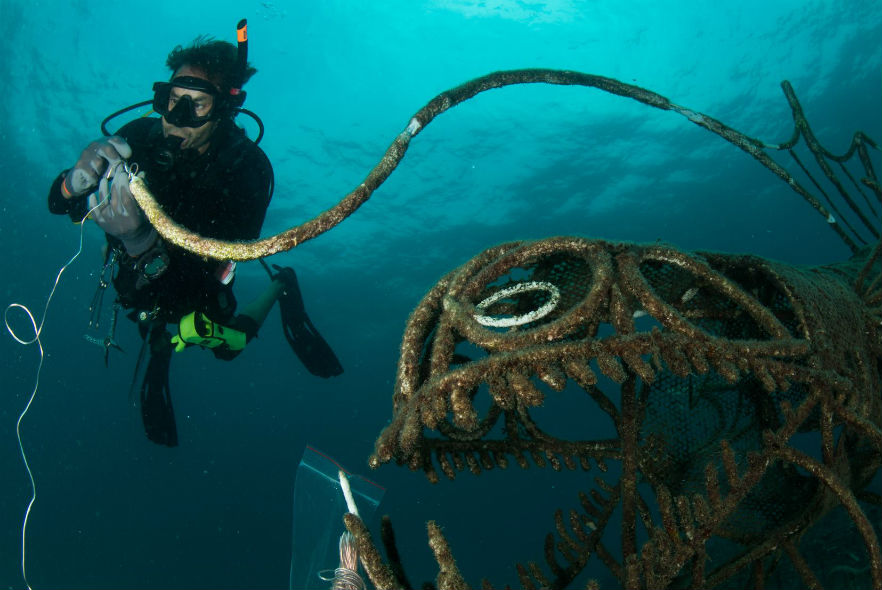
Once lectures have finished, volunteers have a break before diving begins, usually taking this time to grab a bite to eat at the fantastic cafe adjacent to the dive school. Here, there is a wide variety of both Thai and Western food as well as smoothies and hot drinks – perfect for a light bite before diving!
After the break, the diving begins! Volunteers will grab their gear from the dive school and make their way to the long tail boat which transports the group to the dive boat. Once on the boat, all volunteers buddy up and will let the dive instructor know which conservation area they would most like to work on. Volunteers typically spend around 1 – 1.5 hours diving which always speeds by!
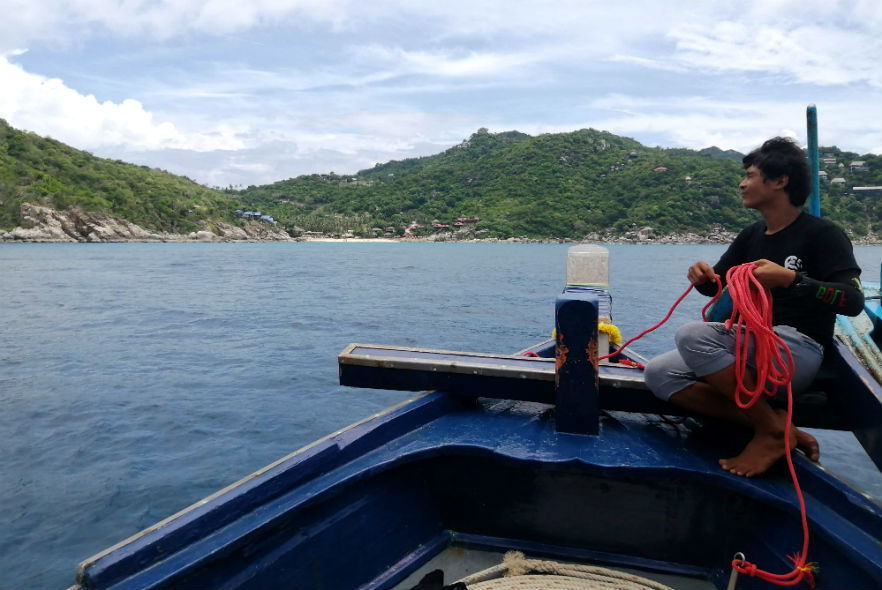
Once the day has finished, volunteers might get involved in some sunset yoga at the dive school, or just go out for dinner together at one of the many fantastic restaurants nearby. Life at our Marine Conservation project really does allow volunteers to gain an incredible insight into the conservation practices of the area, as well as explore and enjoy all that Koh Tao has to offer!
I had an amazing time learning more about the fantastic work volunteers are getting involved with at the Marine Conservation project and I can’t wait to visit again!”
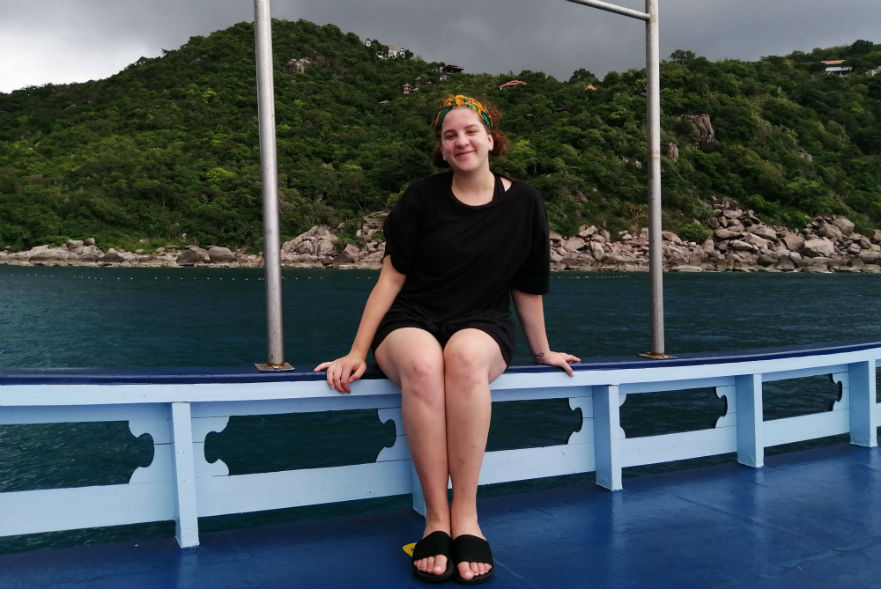
If you would like to find out more about how you can join the team, click here.







